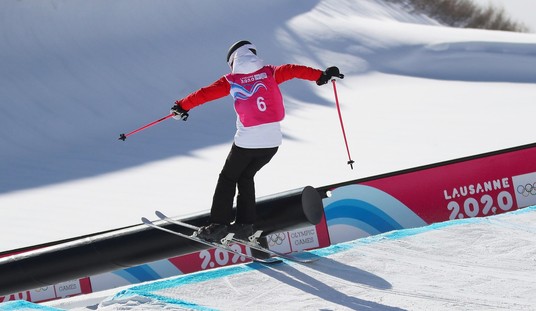On June 14, Nassau County, Long Island police responded to several 911 calls about an out-of-control party. When they arrived, they found about 200 teenagers, most of them drinking alcohol in plain view of police. One girl was too drunk to stand after consuming six shots of vodka.
What makes this different from most teenage drinking parties is the mother of the party hosts — twin 17-year-olds — was home at the time and providing alcohol to the partygoers, most of whom were minors. What makes it really different is that she was held accountable for her actions. The mother, Shanta Subdhan, was charged with violating Nassau County’s social host law which makes it a criminal offense for an adult to knowingly allow minors to consume alcohol in their home.
As the school year ends and teenagers’ thoughts turn to prom night and graduation parties, we parents have to make some hard decisions. Last week, my daughter — an 18 -year-old high school senior — was going over her prom weekend plans with me. One option included a Friday night party at a friend’s house. The parents would be home, I was assured. And then my daughter, knowing that my trust in her hinges on her honesty, explained that the parents would be providing beer and possibly liquor for the kids. I told her to make other plans.
I wondered what made these parents think that they have the right to serve underage children alcohol. I don’t care what they do with their own children; if they want to play beer pong as a family bonding experience, that’s not my concern. My concern is that they have taken it upon themselves to serve alcohol to minors not their own; teens who will be driving to the party and who don’t quite grasp the meaning of “drink responsibly.” Not only is that illegal, but it takes a certain amount of arrogance to think you have the right to determine that it is acceptable for someone else’s child to get drunk in your home — with your permission.
In 2007, Nassau County, Long Island enacted their Social Host law in order to combat the actions of folks like Shanta Subdhan, who — in an attempt to be the “cool” parents — forget their responsibility as adults.
Adults who allow underage drinking in their homes can now be held criminally responsible under the “social host” law signed today by Nassau County Executive Thomas R. Suozzi. Homeowners and renters aged 18 and older can be punished under the law, which carries a $250 fine for a first offense and $500 for a second. A third offense is punishable by a $1,000 fine, plus possible jail time.
There are a few factors at play here in addition to the legality of providing alcohol to minors. When you invite your children’s friends into your house, you become responsible for them. Letting them do something — something illegal — that their parents don’t want them to do is, simply, wrong. It’s not a matter of “kids will be kids.” Nor is serving alcohol justified just because you say you will take their car keys away. There’s so much that can happen with drunk teenagers. Even if you think you can prevent them from driving drunk, you are still left with the prospect of alcohol poisoning, sexual activity, and a myriad of other troubles teens can get into when they are given a little leeway. Rites of passage? Perhaps. But when these things happen to other people’s children on your property, you are responsible for their actions and the aftermath of their actions. Why take that responsibility upon yourself? Do parents who serve alcohol to these kids ever think of the what ifs?
Take this couple from Connecticut for example:
In Portland, police responded to a complaint of an underage party at a private home on prom night this year and discovered about 60 underage partygoers, many of whom were in possession of alcohol. The adults at the residence cited concern about their son’s safety as the main reason for hosting the party.
What about the safety of every other child at that party? What about the parents who were concerned about their own children and sent them off to an adult supervised party, thinking they would be safe?
Unlawful social hosting is a crime in 24 states and can result in civil lawsuits against hosts in 33 states. While experts say these types of laws are hard to enforce and prosecute, they are being put to use:
A West Warwick woman was arrested and charged with a violation of the “social host “law for permitting the consumption of alcohol by underage persons in her residence. Denise Daudelin, 57 of 42 Spencer St., was charged in connection with a party in which at least 11 persons under the age of 21 were drinking. The arrest comes as part of the investigation into the accident that killed Louisa Avila on Quaker Lane on March 20. It was determined that the 17-year-old driver of the car that hit Avila’s vehicle had been drinking earlier in the evening at a party at Daudelin’s home.
A Schenectady, New York woman was arrested last month on 22 counts “unlawfully dealing with a child” after she provided several cases of beer to underage drinkers.
A 45 year old woman was the first to be arrested under Nassau County’s social host law when she provided alcohol to her 18-year-old son and friends, and the party resulted in the police having to break up a fight.
I don’t feel sorry for any of those who have been dragged through the courts on social host charges. You break the law, you deal with the consequences if you get caught. Giving alcohol to someone else’s child, regardless of whether or not they were going to drive, is not only illegal, but a completely irresponsible thing to do. You can make a thousand arguments about lowering the drinking age and the ability of 18 year olds to drink responsibly, but the point is the law is the law. You can not legally serve someone under 21 years of age alcohol.
Way before I had children, back when I thought I knew everything, I always said I was going to be the “cool” mom and not be as strict as my own folks. But I found out real quick that being the “cool” parent often means not being a good parent.
I can’t control what my kids do when they are not at home, but I can make sure I lay the groundwork for them to know what responsible behavior is by setting an example in our house, starting with respecting the law and respecting the wishes of parents who do not want their children drinking outside their own homes.
I can educate my children and set rules and regulations for them, but we all know that when teenagers are in a group setting, especially one where they feel they are given permission by trusted grownups to break the law and their parents’ rules, they face a conflict that most teens don’t have the maturity, will, or self confidence to take the right side. A trusted grown up luring them with the prospect of a cold beer or shot of liquor and all their friends partaking is all it will take for a teen to join the crowd. They face enough peer pressure from their own friends; it’s not right for a friend’s mother or father to entice them to break the rules and possibly put themselves — and others if they are driving — in danger.
I’m not usually one to go for nanny state laws, where you let the state dictate the accountability and personal responsibility you should have on your own. But I think it’s a good law in this case.
Not only can it save an unsuspecting parent from a heartbreaking phone call at 3am, but it will keep irresponsible parents from compromising the safety of other people’s children.









Join the conversation as a VIP Member